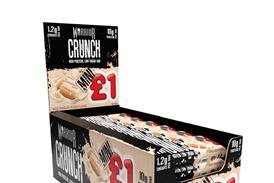Education, education, education... remember Tony Blair's election pledge? It is as relevant to the independent sector as it is to the nation in general; knowledge is power and its absence means that businesses will fail.
But where does the responsibility lie for educating newcomers, say, to the local store marketplace in a grocery world which, for the unwary, may turn out to be a big, bad jungle?
It is the non-symbol retailer who needs ongoing education on the fundamentals of trading, focused on one aspect only: stocking the brands that consumers want to buy.
Objective and impartial guidance, such as that provided by the now-defunct Take Home Blueprint (THB), proves itself in the end. It works because it is based on independent market data and an educational mix of best practice, professionalism and common sense, the three ingredients essential for making money from a family-owned convenience store.
Suppliers and wholesalers have the resources to construct guidance for small shops which is tried and tested and will not harm the retailer on whom both rely, the latter more than the former.
Temptations to find unjustified space on planograms for wholesalers' own labels or a supplier's untried new product must be overcome if the retailers' interests are put first.
It's a lost sale for ever when customers leave the shop empty-handed because they can't find the brand they really want. That last word is absolutely critical: wants means needs.
The objectivity which enabled the THB to give a copper-bottomed guarantee that it would increase sales has to be a guide for future educational processes not only in alcohol categories. That's the Blueprint legacy. And Blair's legacy?















No comments yet